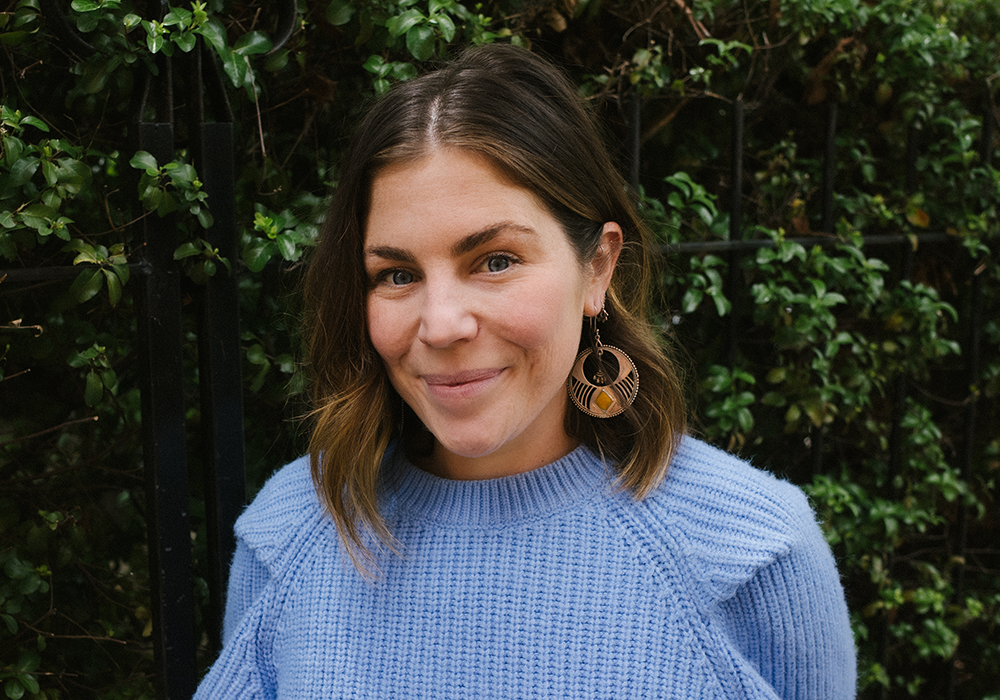Caitlin Stanway: Big impact thinking


Is it possible to connect for-purpose businesses to the mainstream and grow the social impact pie? Caitlin Stanway thinks so.
The Centre for Social Impact UNSW student and passionate co-founder of social enterprise directory, (think) enough , is determined to bring this vision to life, with the platform recently going live and plans for a national launch.
Whether it’s buying a t-shirt that helps support young homeless people or cocktails that are kinder to the planet, Caitlin and her co-founders are hoping their online platform can help consumers make ethical choices about where to spend their time and money.
“(think) enough is about trying to make life easier for people so they can find the businesses that align with the causes they support, and that they get the transparency on how those businesses create impact.”
A passion for social impact
Caitlin traces her passion for social impact to the work ethos of her socially-minded mother and their many regular op shopping and volunteer stints with Oxfam.
“We were brought up doing Amnesty International walks and everything else you could think of to help others. We always had people coming in and out of our home that needed support.”
After working in marketing and communications for various commercial start-ups in Sydney, Melbourne and Byron Bay, Caitlin found herself drawn to roles with a social conscience.
It was while working on digital festival Humankind and its sister project, Menu for Impact - during the first COVID lockdown in Melbourne - that she met Arianna Watson and Sinead Stafford, who, along with Rida Jafri, were working on the beginnings of a project that would soon become (think) enough.
“We were trying to find social enterprises in Melbourne to include them in Menu for Impact and there was no one place where you could find for-purpose businesses to do that,” Caitlin explains.
At the same time Ari, Sinead and Rida had been working on a project to help people find social enterprises to support local communities when travelling.
Many conversations and ideas later and (think) enough was formed, with Caitlin formally joining the team as co-founder.
Collaborating with the social impact sector
The (think) enough team continued to develop their business model, working first within the social impact sector to facilitate collaboration so that they could get more people exposed to for-purpose businesses.
The next step was to expand the directory-based business with projects in the business-to-consumer market.
The team soon realised that they also needed to learn more about the intersection of business and impact strategies, and how to deliver these more efficiently.
Soon after, Caitlin began studying a MBA (Social Impact) with CSI UNSW.
“The course has definitely accelerated us in terms of knowing where and how to work within the sector. The learnings and network of people from different walks of life has been so beneficial.”
Not only has her study been instrumental in supporting the development of (think) enough, it’s also helped transform the work Caitlin does as a strategy and impact specialist.
“Learning how to understand and develop integrated social impact, brand and business strategies through CSI has created a much deeper understanding of the challenges for-purpose businesses face when it comes to communicating their impact, and how to support them through my own consulting work and our work at (think) enough.”
A stronger social economy
Caitlin and her (think) enough co-founders have bold plans for their enterprise.
As a team, they ultimately believe they need to increase awareness and understanding in the mainstream consumer market and to do that they need to engage with the commercial sector.
“If I’m going to work, I want to work towards good and I genuinely believe that there will be a shift where more businesses and more people will turn to these kinds of ethical business models, that can create jobs, opportunities and healing for our world.
“We’ve got to meet consumers where they are. We’re not going to meet them inside the bubble so we’ve got to burst that bubble. For us to have the impact that we want to have, why wouldn’t we create businesses that can include the vast majority of the community? It makes for a stronger economy and happier people.”
